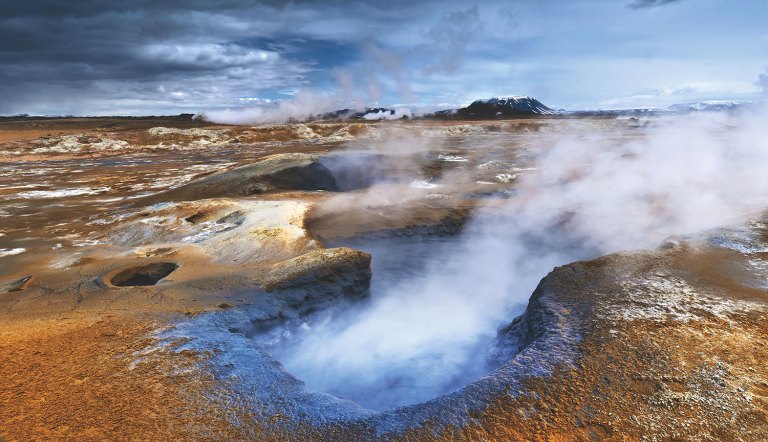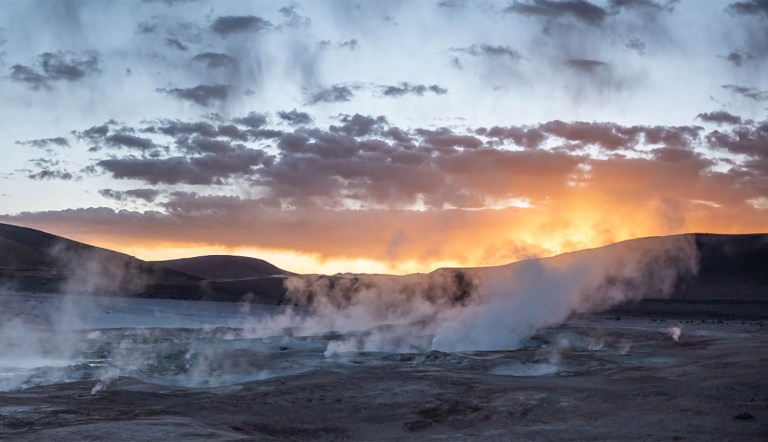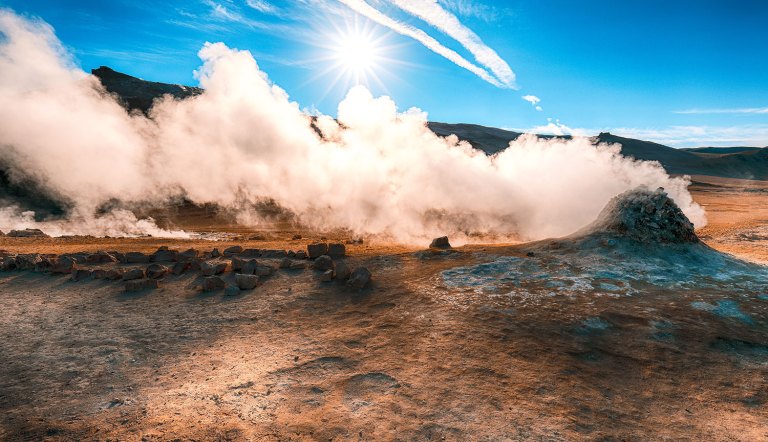Short Course 2
Short course 2 – 27 October
Geothermal Energy Systems and Their Role in Energy Transition
Level: Intermediate
This one-day intermediate-level course on Geothermal Energy provides a comprehensive overview of the different types of geothermal energy utilization, including shallow ground-source heat pumps, direct use of geothermal heat (hydrothermal systems), high-temperature power generation, and heat storage technologies. The course covers both exploration techniques and engineering solutions required for their successful implementation.

Date
27 October
Time
TBC
Location
WTC Rotterdam
Register and start learning now
Course objectives
- Understand the fundamentals of shallow, deep, and heat storage geothermal technologies.
- Learn about key exploration methods (geophysical, geological, and geochemical).
- Gain insights into engineering solutions for geothermal system implementation.
- Develop knowledge of geothermal potential assessment and calculation methods.
- Discuss case studies and real-world applications of geothermal projects.
Course outline
- Introduction to Geothermal Energy
- Overview of geothermal energy as a renewable resource
- Classification of geothermal systems:
- Shallow geothermal (ground-source heat pumps – GSHP)
- Direct-use hydrothermal systems
- High-temperature geothermal for power generation
- Geothermal heat storage (Aquifer Thermal Energy Storage – ATES & Borehole Thermal Energy Storage – BTES)
- Global potential and key projects
2. Shallow Geothermal Energy & Heat Pump Systems
- Principles of ground-source heat pumps (GSHP)
- Subsurface heat transfer and seasonal variations
- Design and engineering aspects of shallow geothermal installations
- Case studies on heat pump applications in residential and commercial
buildings
3. Geothermal Heat Storage Technologies
- Aquifer Thermal Energy Storage (ATES) and its applications
- Borehole Thermal Energy Storage (BTES) and system design
- Challenges and opportunities in large-scale heat storage projects
- Case studies on geothermal heat storage for district heating
4. Direct Use of Geothermal Heat (Hydrothermal Systems)
- Overview of low-to-medium temperature hydrothermal resources
- Industrial, agricultural, and district heating applications
- Exploration techniques: geological, geophysical, and hydrogeological surveys
- Well drilling and reservoir management
5. High-Temperature Geothermal Energy & Power Generation
- Key concepts of high-enthalpy geothermal systems
- Flash steam, binary cycle, and dry steam power plants
- Reservoir exploration and assessment (geochemical, geophysical, and
structural approaches) - Well design and production technology
6. Exploration & Engineering Implementation
- Geothermal resource mapping and assessment methods
- Drilling and well completion techniques for different geothermal applications
- Reservoir management and sustainability considerations
- Key challenges in scaling, corrosion, and reinjection strategies
7. Geothermal Energy Potential Calculation Fundamentals
- Heat in place estimation: Methods to evaluate geothermal resource potential
- Volumetric approach for geothermal reservoir assessment
- Energy extraction efficiency and sustainability considerations
- Comparison of geothermal potential with other renewable energy sources
- Case studies on geothermal energy assessments
8. Case Studies and Future Trends
- Successful geothermal projects worldwide
- Advances in Enhanced Geothermal Systems (EGS)
- Opportunities and challenges for geothermal expansion
- Q&A and open discussion
Participant Profile
Engineers, geologists, environmental scientists, energy
professionals, and policymakers interested in geothermal energy exploration and
implementation.
KEY TAKEAWAYS
Participants will leave the course with a stronger technical foundation in geothermal energy exploration, heat storage, and implementation.




